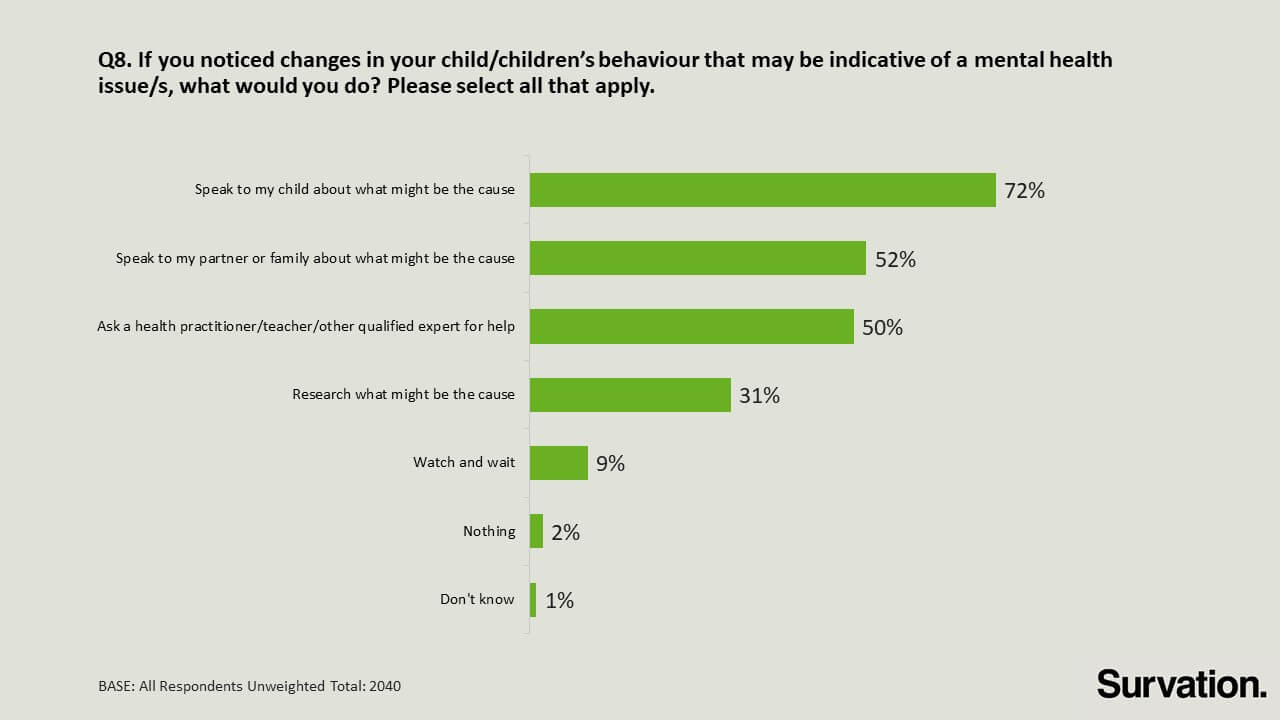Survation Survey Sheds Light on Mental Health Challenges Facing Children During Pandemic
As the impact of the pandemic continues to be felt, Survation conducted a survey of 2,040 parents of primary school-aged children across the UK on behalf of BBC Bitesize and Netmums. Conducted ahead of Mental Health Week, the research focused on children’s mental health during the pandemic, specifically around five key themes: living with uncertainty.
Unsurprisingly, nearly half of all parents surveyed expressed that they worry more about their child’s mental health now than they did at the start of the pandemic. 53% of parents said they worry either a little or a lot more now than they did, highlighting the impact that Covid has had on children, according to parents.
Listening to parents
In addition to the survey, Survation conducted three focus group sessions with parents to further explore their concerns. The sessions revealed that parents worry about the long-term impact of the pandemic on children – the potential lasting effects on development, education, and socialization. There was also concern expressed about the cost of living crisis and everyday life pressures. These findings provide valuable insights into the mental health challenges facing children during the pandemic.

Parents seem to be prioritising their children’s mental health and well-being more since the pandemic, with 74% saying that it has become a bigger priority for them. They are also confident in their awareness about what measures can support a child’s wellbeing, with 79% saying that they are confident.


Understanding Stigma
While almost no parents surveyed (2%) would do nothing if they noticed a change in behaviour that might be indicative of mental health issues in their child, many parents do feel that there is stigma for parents whose children have mental health issues. 49% think there is, however a significant minority (37%) think there is not.


Spotting the signs of change in children’s mental health
Most parents, (53%) say that they are more (either much more or a little more) concerned about their children’s mental health now than they were at the start of the pandemic, showing the impact that the pandemic has had on parental concern about mental health.
If parents noticed changes in their child’s behaviour that might be indicative of mental health issues, most of them would speak to their child about what might be the cause (72%). About half would speak to a partner or family member about the cause, or ask a teacher, health practitioner, or other qualified professional.
Socialising/ connecting with immediate family and friends/creating social opportunities
In general, it seems that parents have noticed children expressing anxiety about the pandemic. More have done (49%) than have not (45%). The issue that children seem to have been most anxious about was that they could not see family and friends as often. 66% of parents said that they had noticed this. Not being able to attend school/ home school and concern about health or the health of loved ones were also significant, both at 53%.


27% of parents who noticed deteriorations in their child/children’s mental health in the last 6 months said they believed that this was due to ‘friendship problems’ or ‘not being able to see friends or family’. While ‘school work pressures’ and ‘poor quality sleep’ also played a large role, it is interesting to see that the social issues surrounding covid are being perceived by some parents as a reason for children’s mental health deterioration.

How to have difficult conversations
Parents feel confident in having conversations with their children about their mental health. 88% are confident or very confident, with only 10% not being confident.
79% of parents are confident in their knowledge about wellbeing measures to support their children’s mental health.
In the focus groups, parents talked about being less strict and kinder since the pandemic, and are keen not to close communication channels or scare their children. Parents of younger children were specifically looking for how to explain issues in child friendly ways.
Get The Data
The BBC’s Parent’s Toolkit can be found here.
The summary for this research can be found here, and the tables can be found here. Survation conducted online polling of 2,040 parents of primary school aged children in the UK on behalf of BBC Bitesize and Netmums, between the 9th and 16th March 2022.
________________________________________
Survation. is an MRS company partner, a member of the British Polling Council and abides by their rules. To find out more about Survation’s services, and how you can conduct a telephone or online poll for your research needs, please visit our services page.
If you are interested in commissioning research or to learn more about Survation’s research capabilities, please contact John Gibb on 020 3818 9661 email researchteam@survation.com or visit our services page.
For press enquiries, please call 0203 818 9661 or email media@survation.com
BPC Statement: All polls are subject to a wide range of potential sources of error. On the basis of the historical record of the polls at recent general elections, there is a 9 in 10 chance that the true value of a party’s support lies within 4 points of the estimates provided by this poll, and a 2 in 3 chance that they lie within 2 points.
< Back

